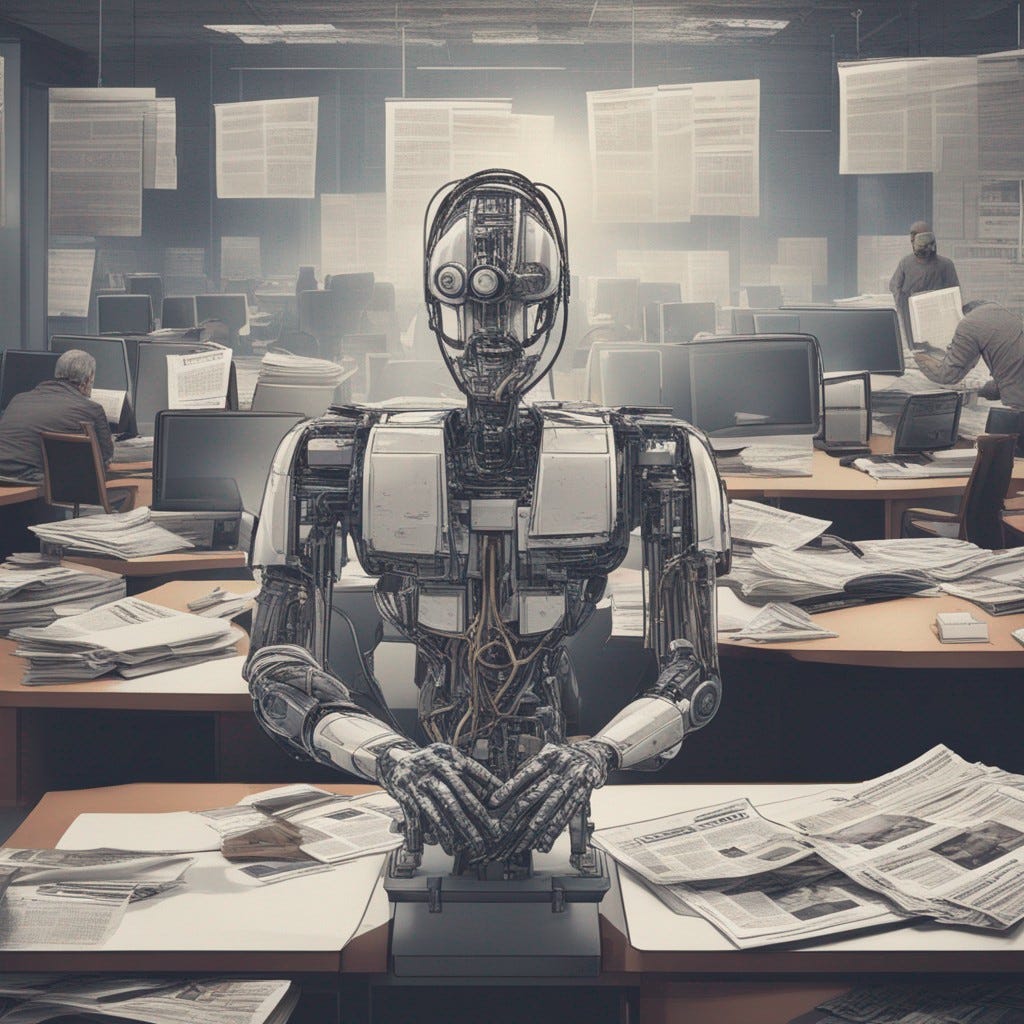In a rapidly evolving digital era, artificial intelligence (AI) has emerged as a formidable force across industries, impacting various job sectors. The latest victim of this transformative technology is the world of journalism, where AI is increasingly replacing journalists, revolutionizing the way news is produced and consumed.
News Corp Australia, for example, is producing 3,000 articles a week using generative artificial intelligence, executive chair Michael Miller revealed.
In Taipei, a team of four is using the technology to generate thousands of local stories each week on weather, fuel prices and traffic conditions, reported the Guardian.
The use of AI in journalism has gained momentum due to its ability to analyze vast amounts of data from various sources, saving time and resources. By utilizing natural language processing and machine learning, AI systems are capable of conducting interviews, fact-checking, and writing news stories. This shift towards AI-driven journalism has raised concerns about the future of human journalists.
In July, it was reported that Google has been shopping an AI to newsrooms across the country.
“Google is testing a product that uses artificial intelligence technology to produce news stories, pitching it to news organizations including The New York Times, The Washington Post and The Wall Street Journal’s owner, News Corp, according to three people familiar with the matter,” the New York Times reported.
One key advantage of AI in news reporting is its speed and consistency. AI algorithms can instantly generate articles on breaking news, eliminating the delay caused by human reporters. Furthermore, AI systems avoid human biases, leading to more objective news coverage. However, some worry this objectivity might sacrifice the human touch and empathy that traditional journalism offers.
In February, dozens of members from several unions—the NWU, WGAE, NewsGuild and NABET—got together on Zoom to discuss the impact of AI on journalism.
During the call, according to the National Writers Union, a writer at Gizmodo “gave a more substantive overview of what AI chatbots like ChatGPT and DALL-E are and how they transform the data they’ve been trained on to spit out ‘new’ content, then highlighted how the technology, in its current form, stands in opposition to the tenets of ethical journalism—a fact which staff unions both can and should bring up with management whenever AI eventually shows up in their newsroom.”
In June, the NewsGuild of New York hosted a members-only “Open Forum on Artificial Intelligence” for its journalist members to discuss AI entering their newsrooms.
One prominent example of AI in journalism is NewsGPT, an advanced AI language model developed by OpenAI. NewsGPT can scan, summarize, and reframe lengthy reports into concise, readable articles, significantly reducing the time it takes to produce news content. Additionally, companies like Automated Insights and Google's Project Knowledge Graph are implementing AI to create automated news stories across a range of topics, from sports to finance, considerably streamlining the news production process.
As AI continues to evolve, and the debate looms large, the future of journalism remains uncertain. While it is true that the role of human journalists is undergoing significant transformation, it appears unlikely that AI will completely replace them. Instead, this technological disruption presents an opportunity for journalists to evolve alongside AI, adapting their skills to analyze, verify, and contextualize information generated by AI systems.
Like other professions, and as it has since the advent of the digital newsroom, the world of journalism is experiencing a sweeping wave of change as artificial intelligence emerges as a tool in newsrooms.
Whether AI displaces journalists in part or entirely will likely be determined by the technology and whether the public that consumes the news will accept AI-generated news.
Editor’s note: This heavily-edited article was partially written using artificial intelligence as a demonstration of how quickly AI is developing.






Knowing that news media conglomerates manipulate the truth within their news content and knowing that companies like Google manipulate access to this contrived truth should be reason enough to destroy AI before it destroys us.